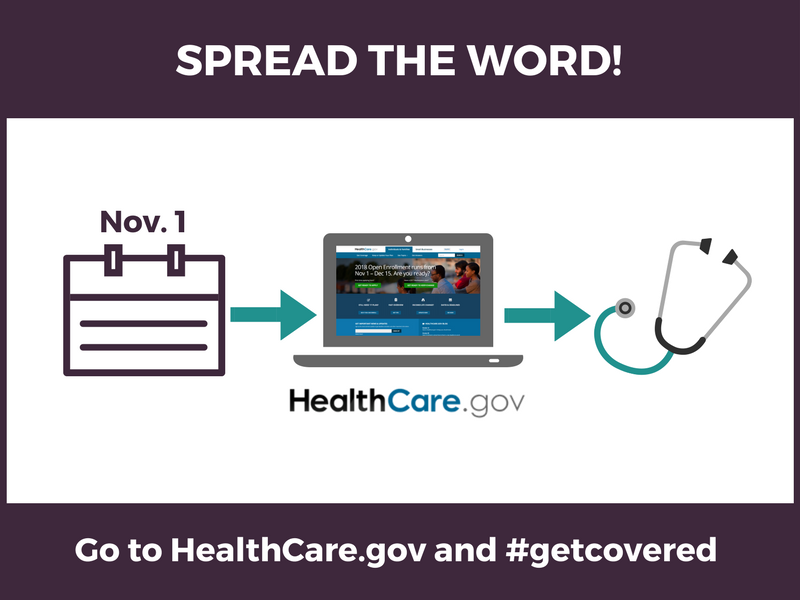Open Enrollment: 5 Things You Need To Know
Thanks to the efforts of millions of Americans around the country, the Affordable Care Act (ACA) remains the law of the land and young children and their families can still get the health insurance they need to thrive.
That means that on Wednesday, November 1 those that need comprehensive health insurance coverage that begins on January 1, 2018 can purchase it—often with significant financial help—through HealthCare.gov and state marketplaces.
Don’t let the headlines detract from this fact: moms and babies need health insurance to access critical services that are vital during the first 1,000 days—and it is available!
While we must remain vigilant to defend health care from ongoing threats, we also need to ensure that everyone who needs health insurance gets signed up. Soon, millions of Americans will be able to go to HealthCare.gov to choose a health plan that meets their needs. Leading up to and during open enrollment, we all must get the word out and help ensure people get covered.
Here are the top five things you need to know about open enrollment:
-
- Open Enrollment starts on November 1 and ends on December 15! Need health insurance for 2018? You must enroll between November 1 and December 15, 2017.This is the only time in the year to purchase health insurance through the Marketplace (other than in some very limited special life changes). So it’s important to get enrolled during this limited, open enrollment window! Coverage purchased during open enrollment begins January 1, 2018.
- HealthCare.gov (or your state’s marketplace) has information about the health plans available in your area. If you want to see what coverage options are available in your community, HealthCare.gov or your state marketplace has the information you need. Starting November 1, 2017, you can enroll in a plan that meets your health needs and the needs of your family. And coverage could be more affordable than you think. For many, significant financial help is available based on income and family status. Health insurance plans also offer help paying out-of-pocket expenses for some families. These subsidies are all still available to consumers and have not been impacted by any of the recent debates in Washington, DC.
- Shop around! Take some time to compare health plans in your area and understand what coverage options are available. HealthCare.gov or your state’s marketplace make it easy to do this. Understanding the differences among the plans is important and can help you choose the best option for your family. You may be able to even save some money!
- Help is available. So ask for it! Free expert help is available. If you have questions about signing up or want to talk through your options with a trained professional, free help is available online, over the phone, or in person. They can help answer your questions and assist with filling out the paperwork. To find a professional in your area, check out localhelp.healthcare.gov or call 1-800-318-2596.
- Spread the word! Know someone who needs health coverage? Spread the word! Open enrollment is just 45 days this year—and outreach efforts are limited. Please share this information with anyone you know who needs health insurance. We all can help ensure our family, friends and co-workers get connected and enrolled in the health coverage they need.







